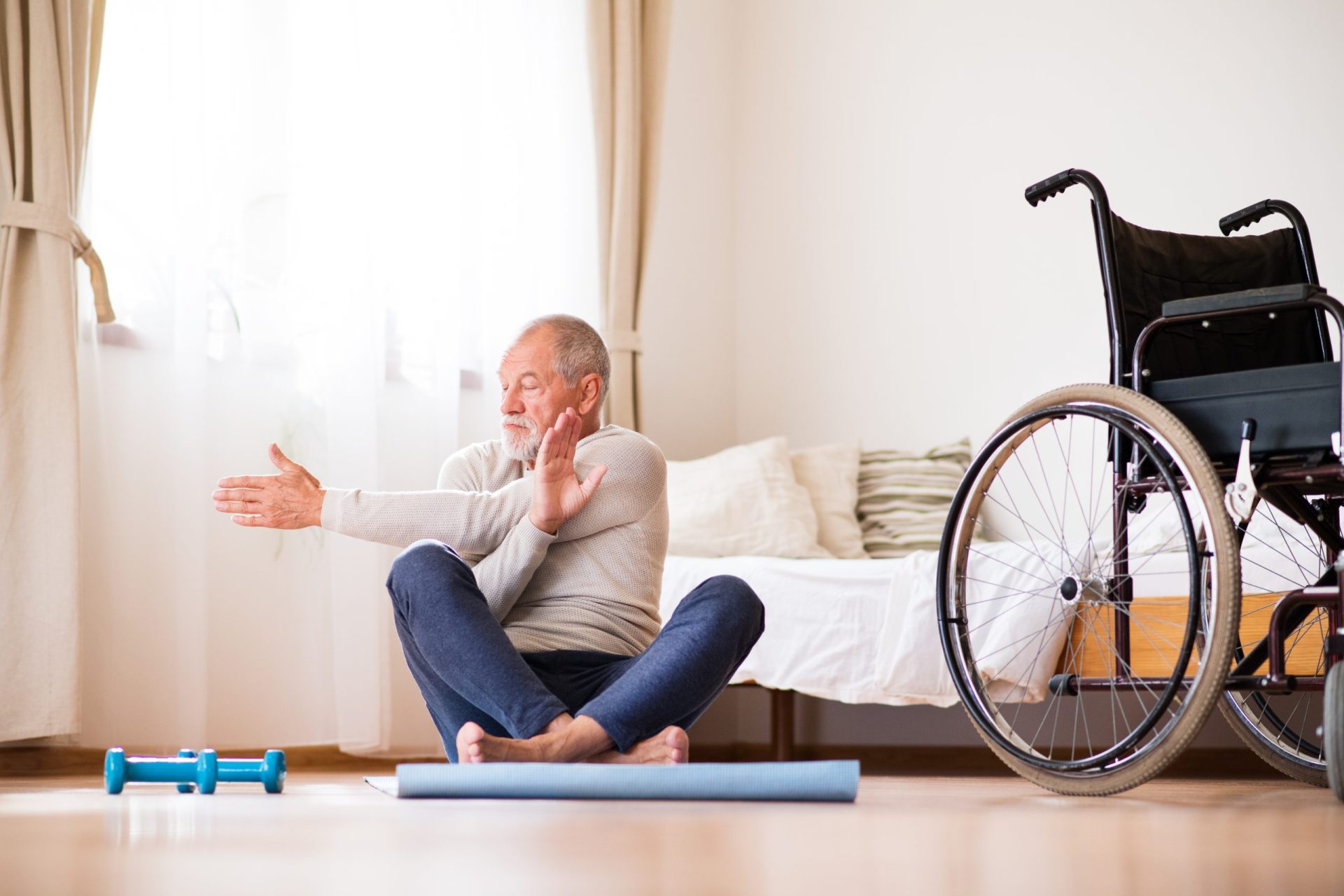
At the start of the new year, many Americans resolve to become more fit. Exercise and its benefits are not out of reach for wheelchair-bound individuals. Here are a few benefits you can look forward to when you add regular exercise into your schedule.
- Maintain Independence
For seniors hoping to age in place, regular exercise to maintain or regain strength is crucial. For seniors who have decreased or lost mobility in their legs, keeping core and upper body strength will still allow you to reach for items, and care for yourself, allowing you to maintain your independence.
- Emotional Benefits of Exercise
Endorphins released during exercise can help boost your mood, relieve stress and regulate your sleep.
While exercise is not a cure-all for all mental health challenges, routine exercise can offer plenty of emotional benefits, both immediate and long-lasting. For further reading on the link between exercise and mental health, see here.
Seniors can face a variety of factors that can lead to depression, from certain medications to frustration over a loss of mobility. Some studies have shown that regular exercise can be as effective as antidepressants. In addition to the mood-boosting benefits of regular exercise, keeping your strength and independence can also counter depressed feelings.
- Prevent Injury and Falls
If you are self-ambulating in a manual wheelchair, your chest and shoulder muscles need extra support to prevent injury from the repetitive motion, and your back muscles need strengthening as they are not engaged when pushing your chair.
If you only use your mobility device part-time, it is important to strengthen your core and leg muscles to prevent falls when you are standing or walking.
Regardless of your disability, being in a sedentary position for most of the day can cause serious side effects, such as blood clots. Routine movement can help prevent these or other serious problems due to inactivity.
- Social Benefits
Finding social outlets for your exercise, such as a wheelchair basketball team or a swim class at an adaptive gym can help you meet new people. Keeping and growing your social network can provide emotional support, and finding people in your community with a similar mobility impairment can be a great outlet for resources and camaraderie.
- Fighting Disease
Maintaining a healthy weight and getting regular exercise are helpful in fighting heart disease and diabetes. People who have physical disabilities may be at higher risk for certain conditions, and regular exercise can alleviate some of these factors.
If your disability increases your risk for specific conditions, a fitness routine can be designed by a health or fitness professional to combat those effects. For example, if others with your mobility device are at risk of lower back pain, stretches and strength exercises targeting the lower back and hips can be incorporated into your routine.
When you are ready to get started with a fitness routine, consult your doctor or physical therapist for suggestions on exercises best for your individual needs, and adaptive sports programs and gyms in your area.
For those using a manual wheelchair, make sure that your wheelchair set up has been individualized for your body as you do not want to risk unnecessary upper body damage during regular use.
And remember, you don’t need to start with marathon training. Listen to your body and work at its comfort level. Never push yourself to the point of pain, and stop exercising immediately if you begin to feel faint or dizzy.

Don’t Risk Injury To You Or A Loved One
Why wait? Give us a call at 877-596-7293 or contact us online to get started!